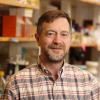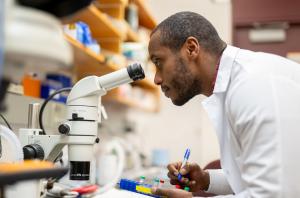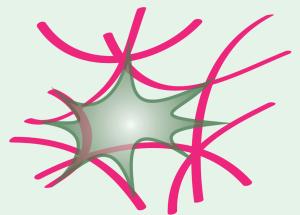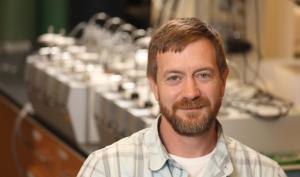Thomas H. Barker, Ph.D.

About
Thomas Barker explores and therapeutically exploits the fundamental links between fibroblast adaptation to their physical and biochemical microenvironment and their myofibroblastic differentiation during tissue repair, fibrosis and cancer. Dr. Barker is a Professor in Biomedical Engineering in the Schools of Engineering and Medicine at the University of Virginia. He performed his academic and scientific training with Drs. James Hagood, Joanne Murphy-Ullrich, Helene Sage, and Jeffrey Hubbell prior to his first faculty post at Georgia Institute of Technology, where he spend 10 years as an Assistant and Associate Professor. Dr. Barker’s research integrates engineering and quantitative approaches with basic cell and molecular biology to understand and control cell phenotype through their interactions with natural and engineered extracellular matrices. Dr. Barker is also focused on understanding the fundamental roles of cell mechanotransduction and mechanical forces in regulating the biochemical activity of proteins in the extracellular matrix toward wound repair, regeneration, and fibrosis. Dr. Barker has established a number of fundamental systems based on rational mutagenesis, molecular evolution of extracellular matrix protein fragments and antibodies that allow both basic biochemical and cell biological studies on the ECM and detection and treatment of organ fibrosis. Dr. Barker has co-authored research and review papers in leading cell biology, matrix biology, and biomaterials journals, he received the NIH Director’s Transformative Research Award in 2015. Dr. Barker was also the recipient of the American Society for Matrix Biology’s Young Investigator Award in 2012 and Iozzo Award in 2016.
Education
B.S. Oglethorpe University, 1995
M.S. University of Alabama at Birmingham, 1999
Ph.D. University of Alabama at Birmingham, 2003
Post-Doc University of Washington and the Hope Heart Institute, 2003-2004 and Ecole Polytechnique Federale de Lausanne, 2004-2006
We develop therapeutics to fibrosis, or scar formation. While scars of the skin might be unsightly, scars in organs, like the lung, kill people.


